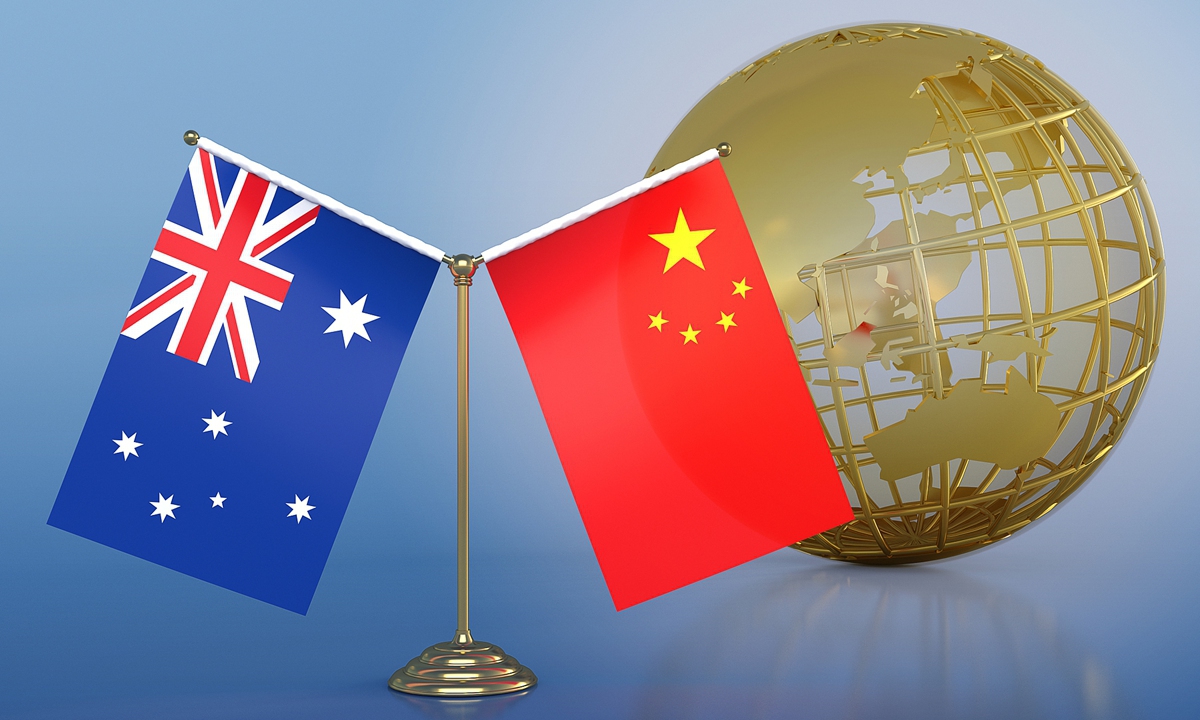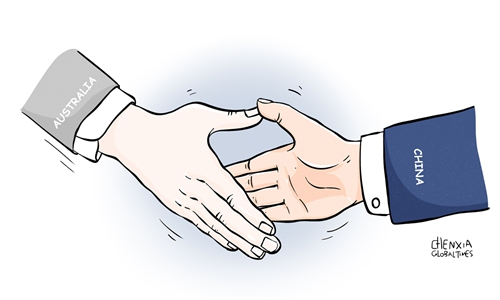China-Australia relation not targeted at third party, nor should be influenced by any third party: Chinese FM Wang Yi

China Australia Photo: CFP
Since the relationship between China and Australia is on the right track, we should not hesitate, deviate, or backtrack, and the development of the bilateral ties is not targeted at any third party, nor should it be influenced or interfered with by any third party, Chinese Foreign Minister Wang Yi told Australian Foreign Minister Penny Wong in Canberra on Wednesday.
Wang held the seventh China-Australia Foreign and Strategic Dialogue with Wong during the former's visit to Australia.
This is our sixth meeting, and each time we meet, mutual trust increases by one point, and the China-Australia relationship advances one step further, Wang told Wong.
The Chinese Foreign Minister said this is an important year that carries on the past and opens up the future. Building on the good momentum of bilateral relations so far, and both China and Australia should "work together to create the future" and, with a more proactive attitude, jointly build a more mature, stable, and fruitful comprehensive strategic partnership.
Over the past 10 years, the ups and downs of China-Australia relations have left us with lessons to learn and experiences to cherish, namely mutual respect, seeking common ground, pursuing mutual benefit, and to uphold independence and autonomy, Wang said.
Wang said China has always pursued an independent foreign policy of peace, and our policy toward Australia has been consistent. The development of China-Australia relations is not directed against any third party, nor should it be influenced or interfered with by any third party.
He noted that since China-Australia relations are on the right track, we should not hesitate, deviate, or backtrack. With a clear direction toward progress, we should strive to move forward steadily, well, and far. This is in the common interest of the two peoples and the general expectation of regional countries.
Wang also said that China is ready to work with Australia to prepare for high-level exchange between two countries and deepen cooperation on traditional field such as mineral, energy and agricultural products; also explore cooperation on new energy, digital economy, green development and coping with climate change.
He urged Australia to take concrete measures to uphold the principles of market economy and fair competition rules, and provide a fair, just, transparent, and non-discriminatory business environment for Chinese enterprises investing and operating in the country.
Wang elaborated with Wong on China's stance on issues related to island of Taiwan, Hong Kong, Xinjiang, Xizang, and the South China Sea, emphasizing that there is no historical entanglement or fundamental conflict of interests between China and Australia, and that their common interests far outweigh their differences.
According to a handout related to the dialogue issued by China's Ministry of Foreign Affairs, Wong stated that Australia and China have close historical, trade, and cultural ties, and are comprehensive strategic partners. As countries in the same region, differences should not define the relationship between Australia and China.
She said that Australia is pleased to see significant progress in bilateral relations in recent years and is willing to further strengthen dialogue and communication with China on the basis of mutual respect, to manage differences, to leverage complementary advantages, and to deepen cooperation in economic, trade, and cultural fields.
Both sides agreed to resume and establish dialogues in various fields , promote more cooperation across foreign affairs, economic, trade, science and technology, education, and law enforcement departments of the two countries, and actively consider initiating a dialogue on maritime affairs. Both sides agreed to take further measures to facilitate the exchange of people between the two countries.
Global Times

